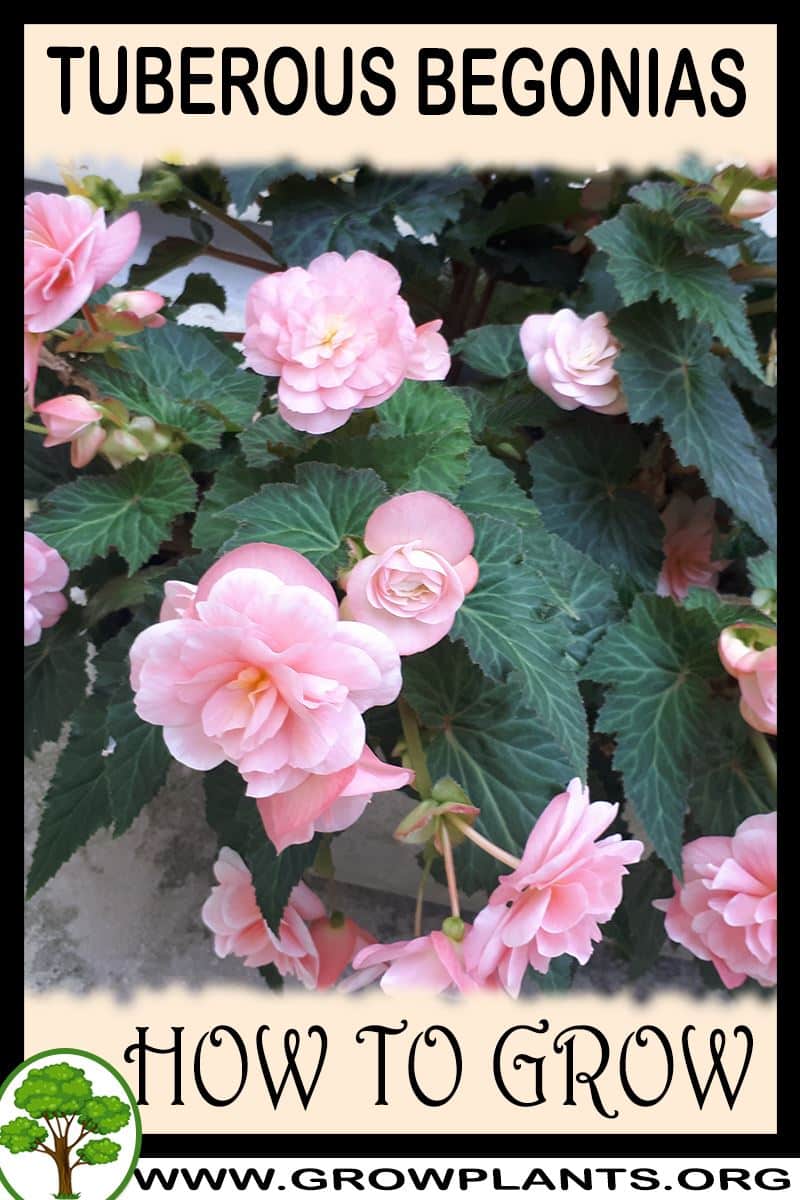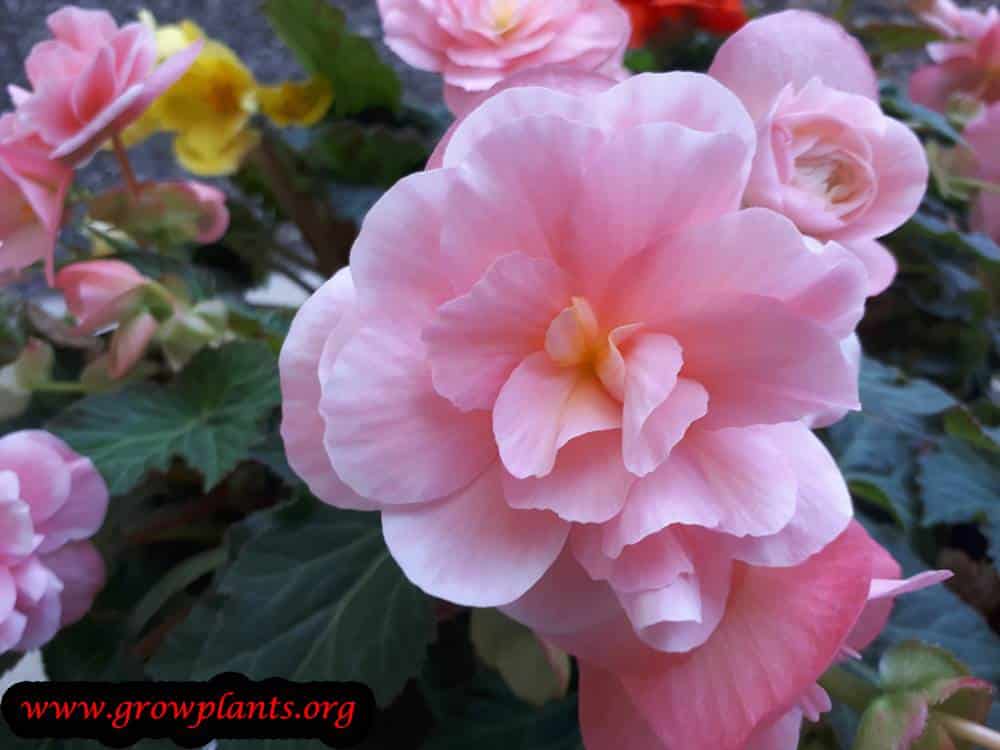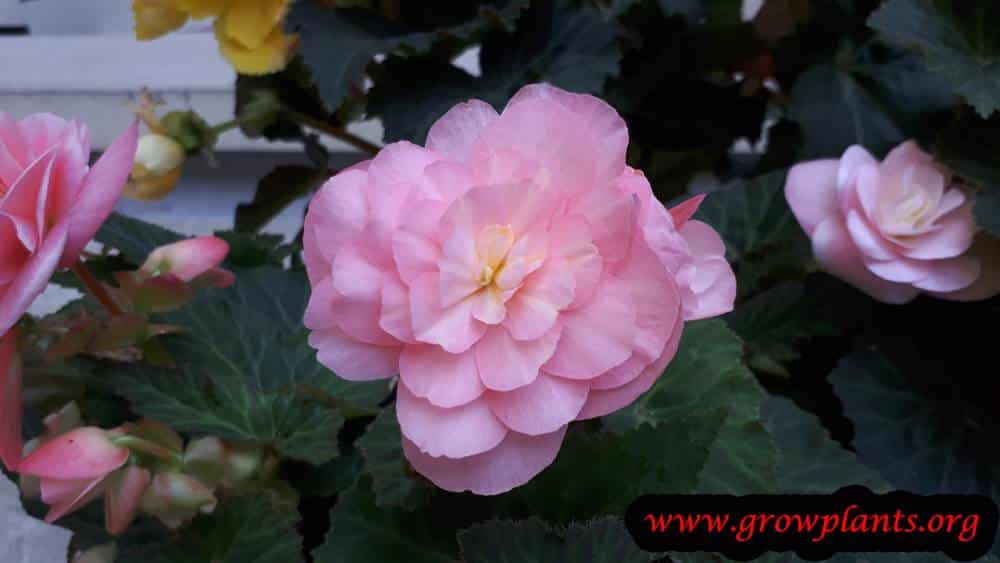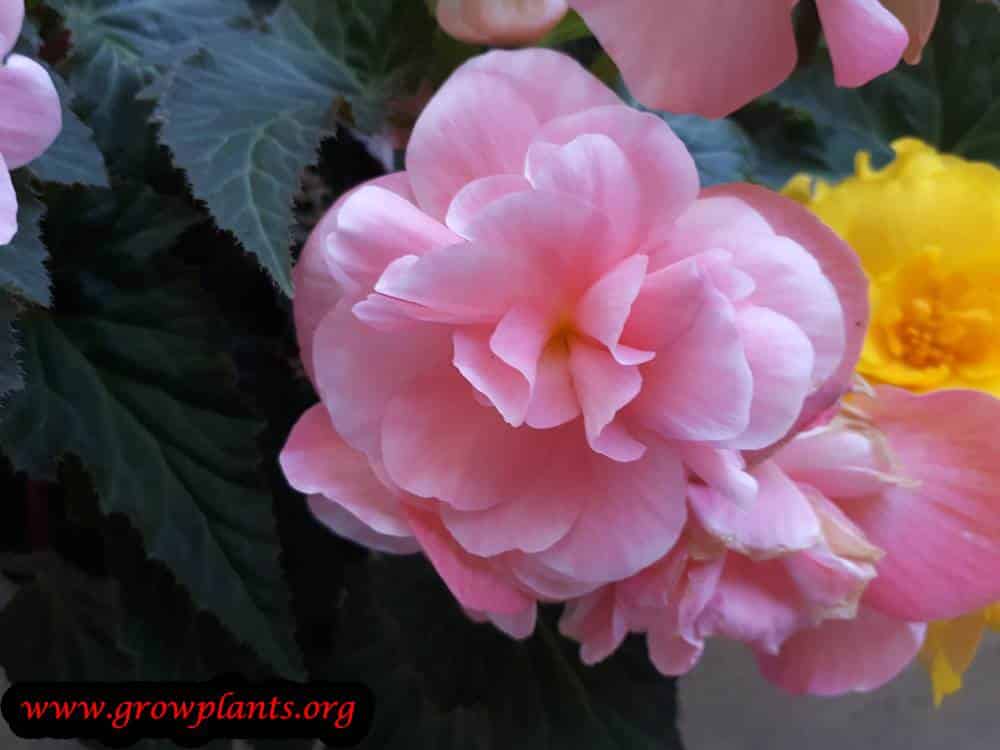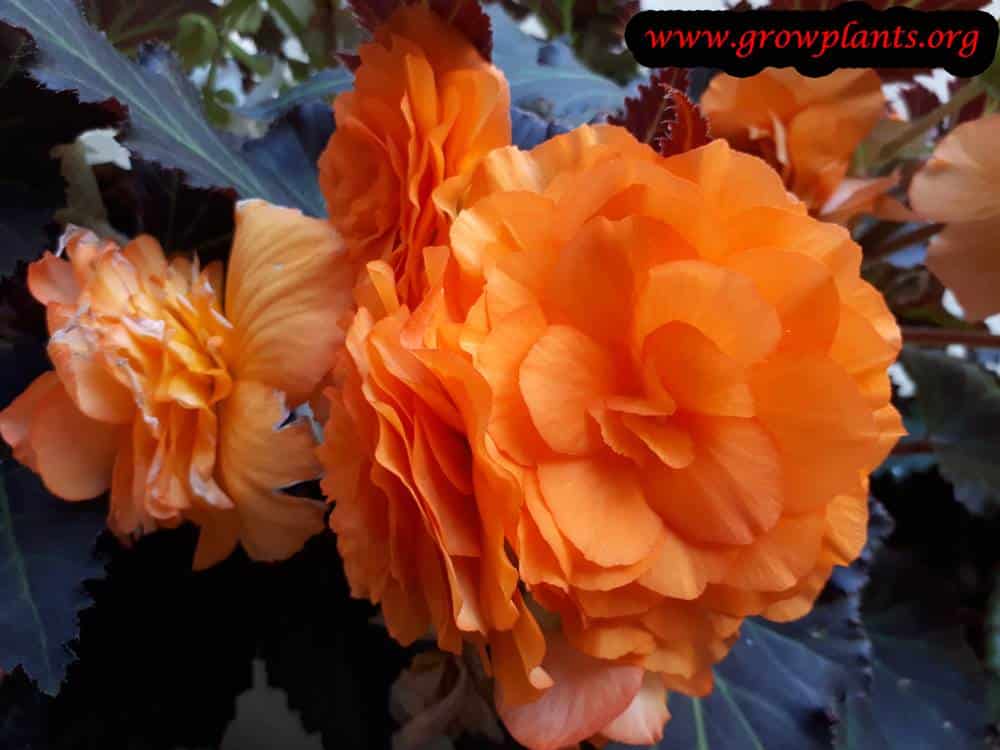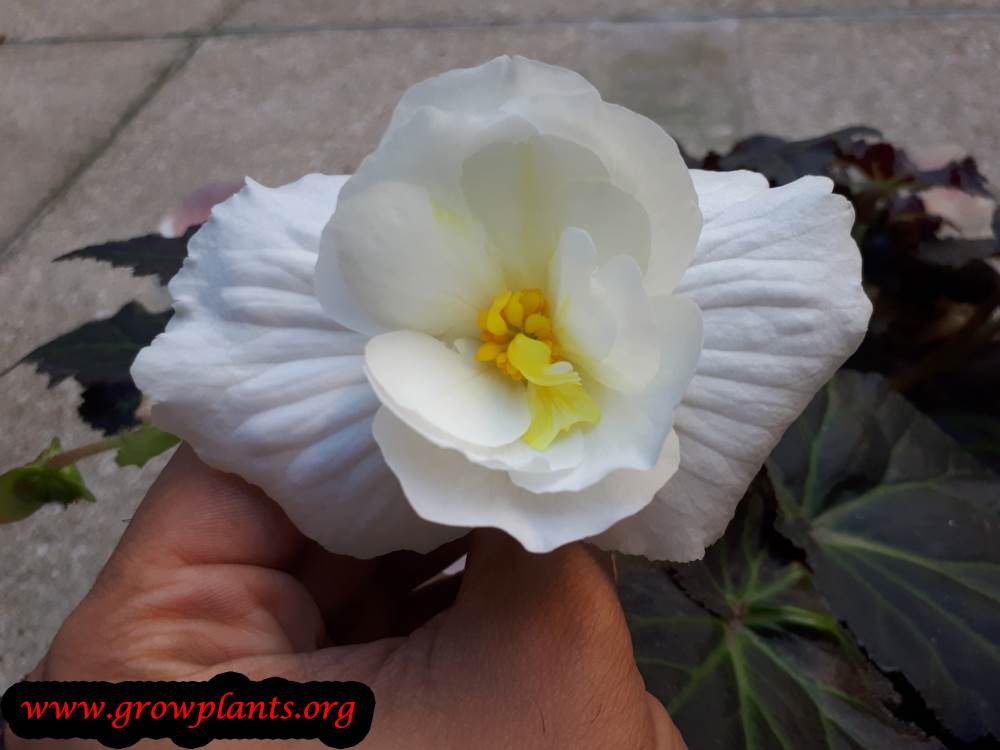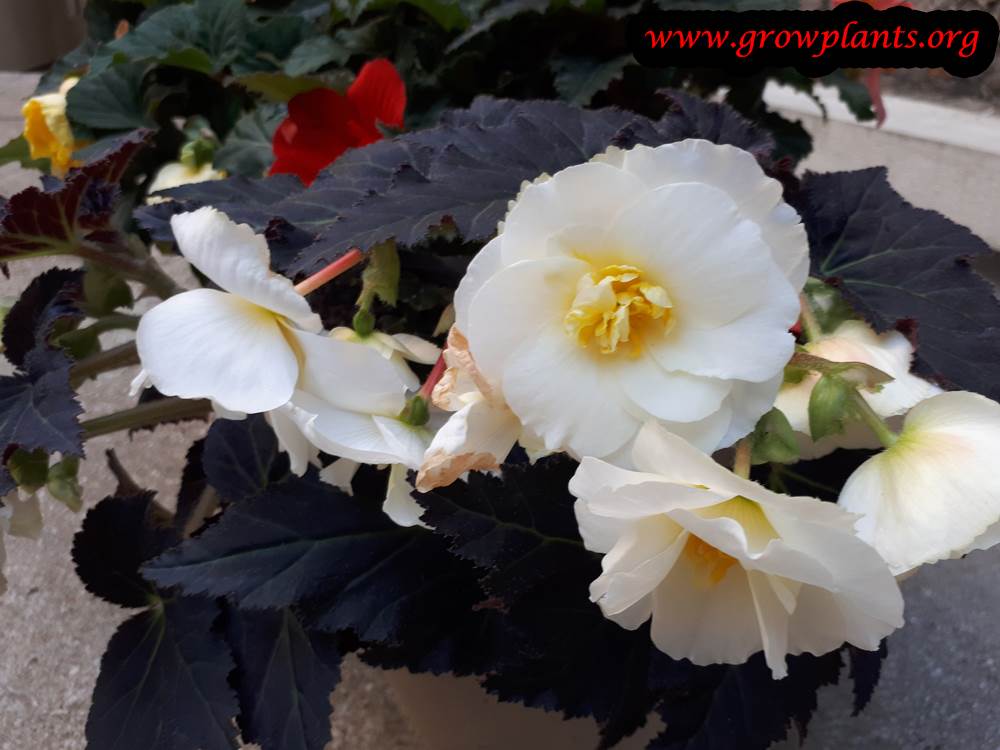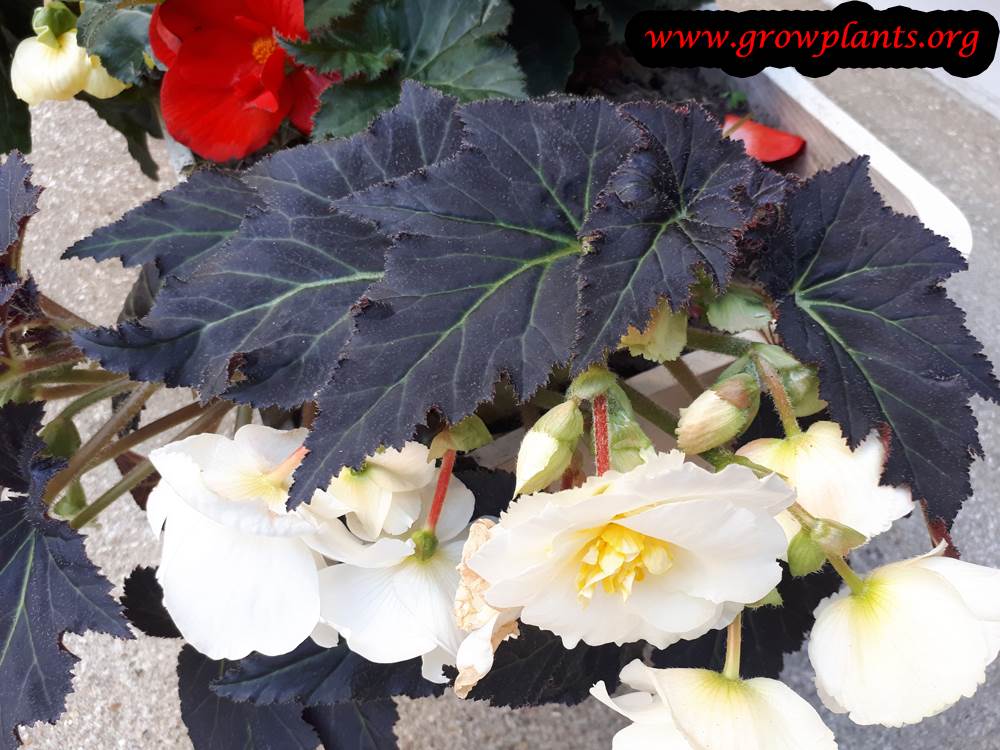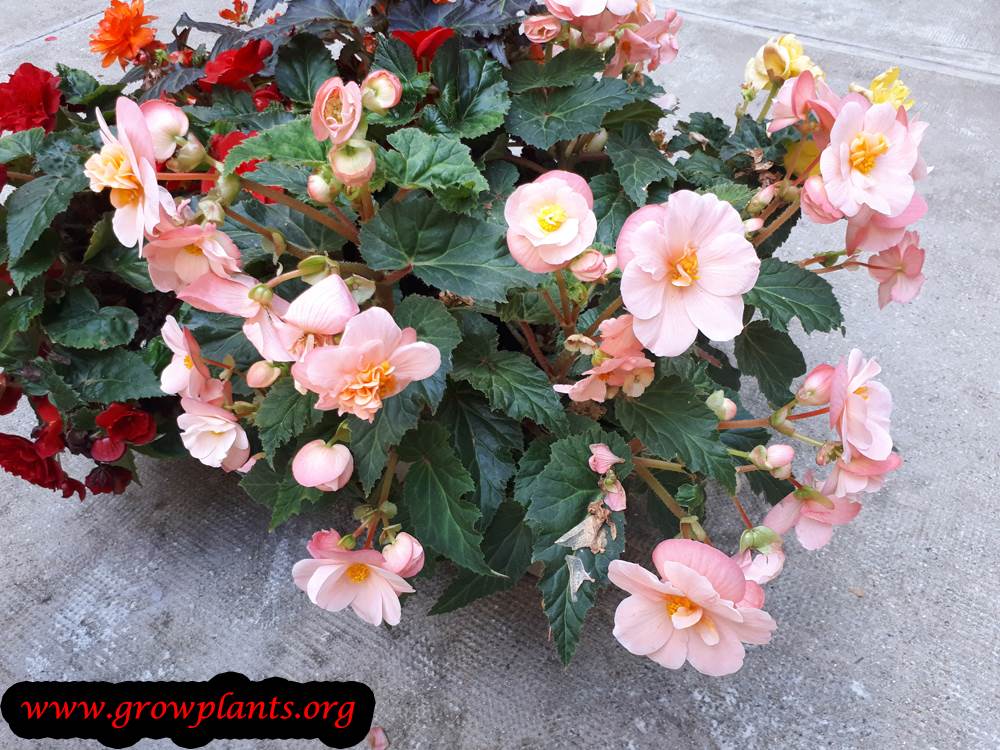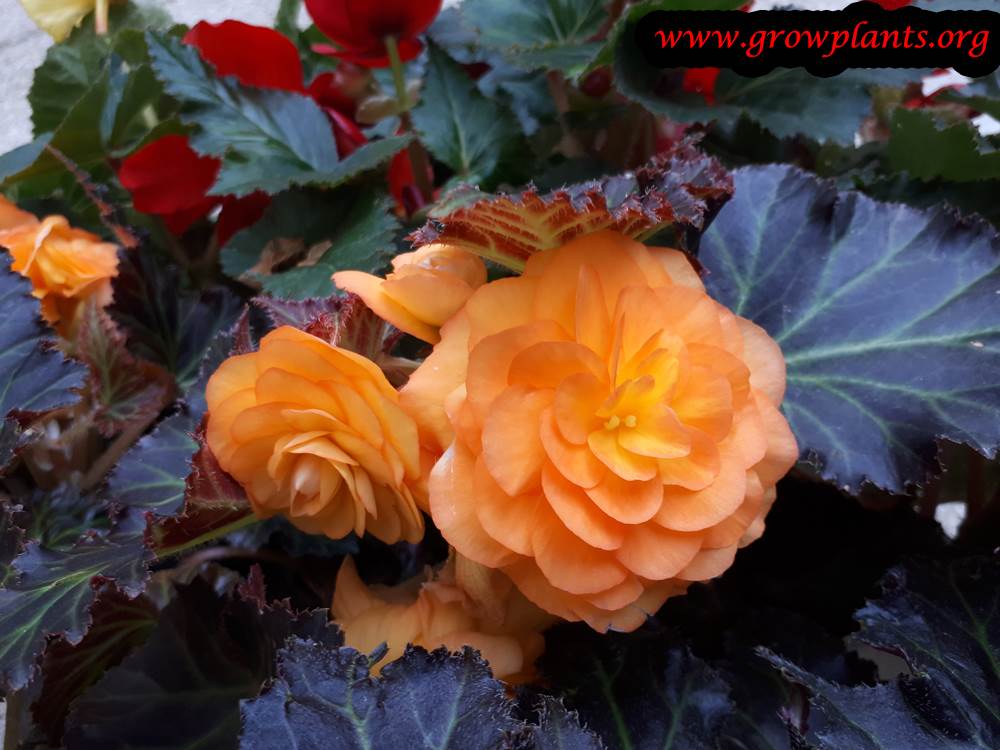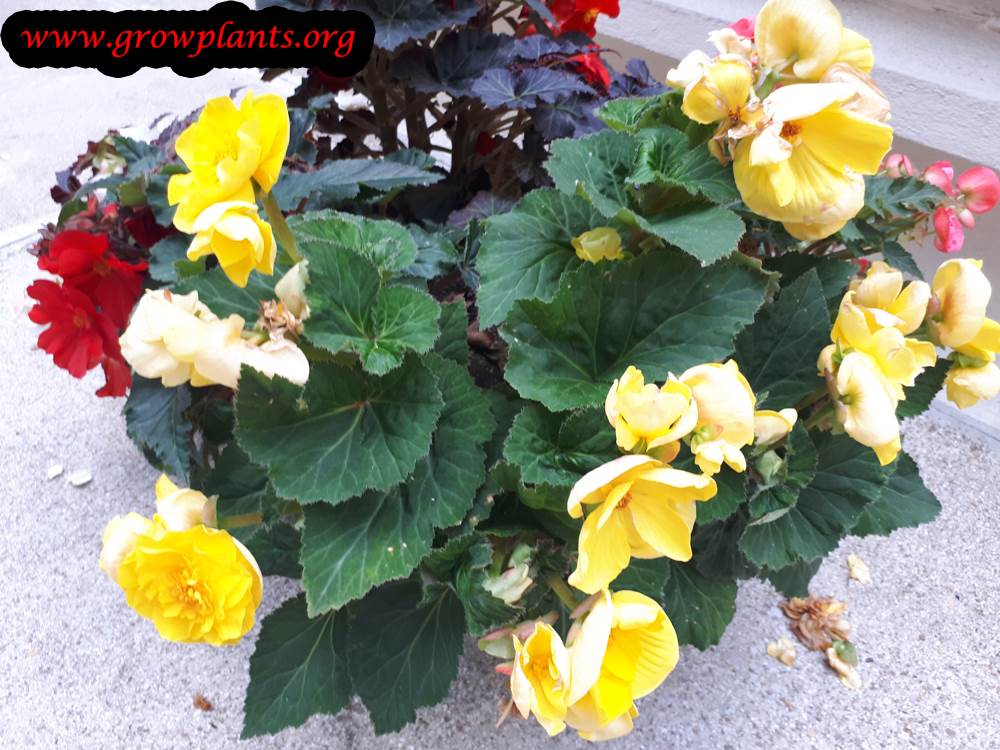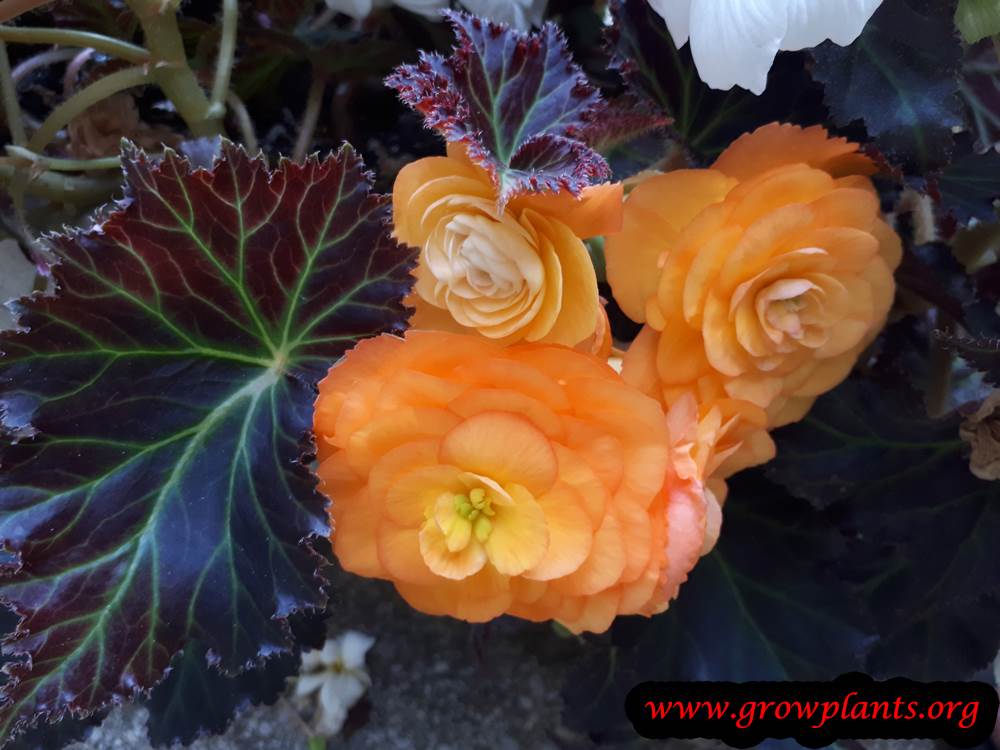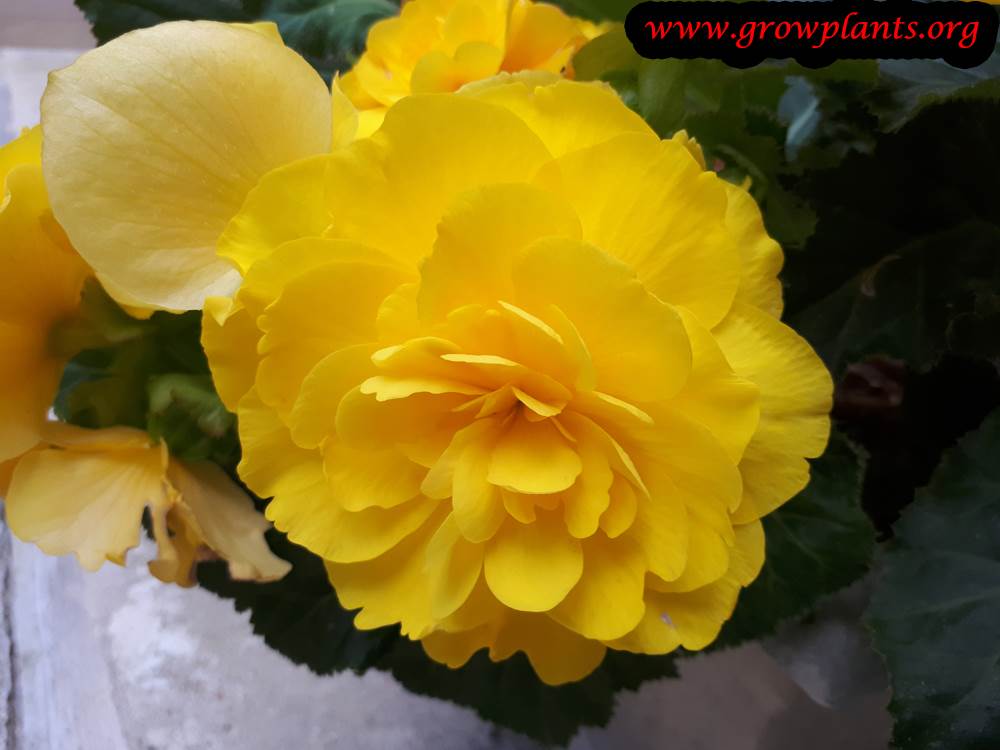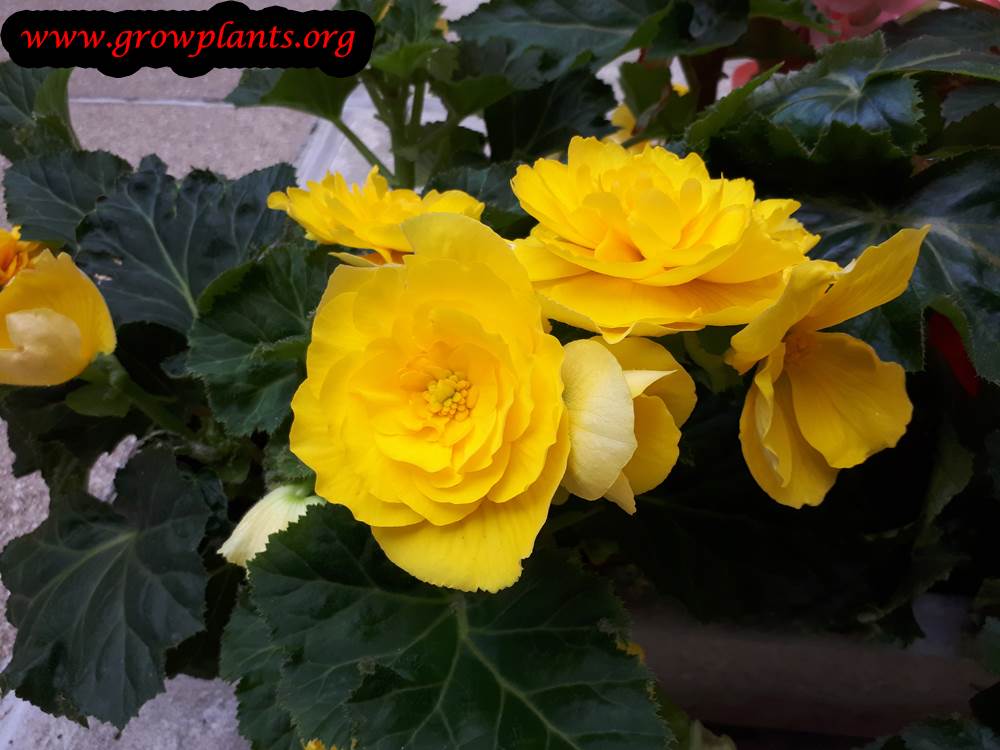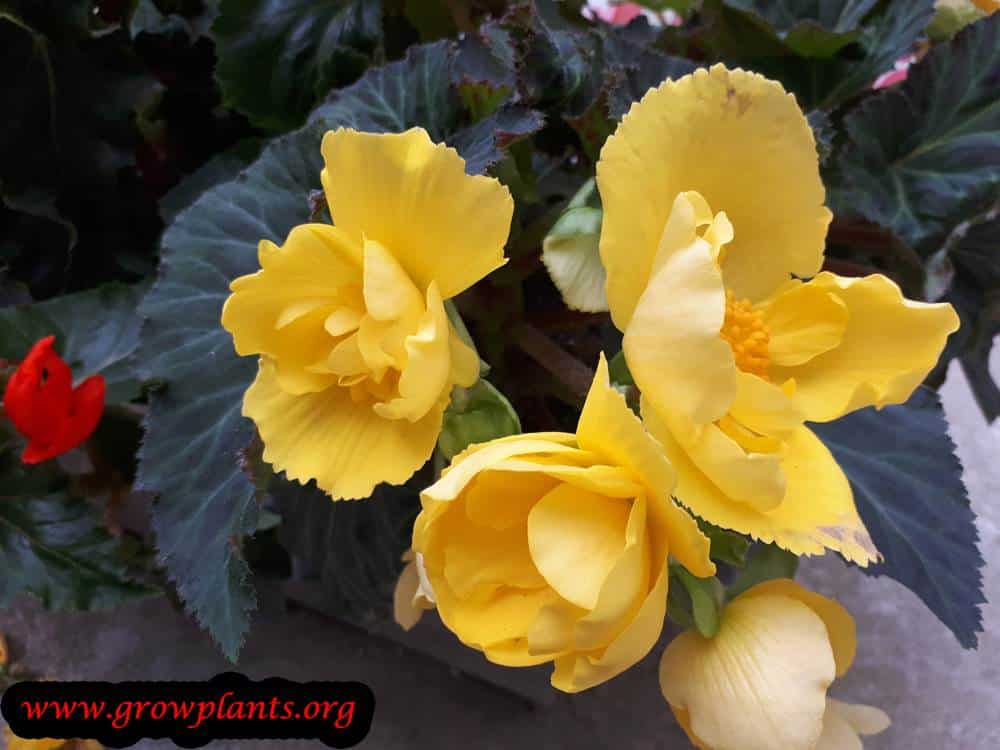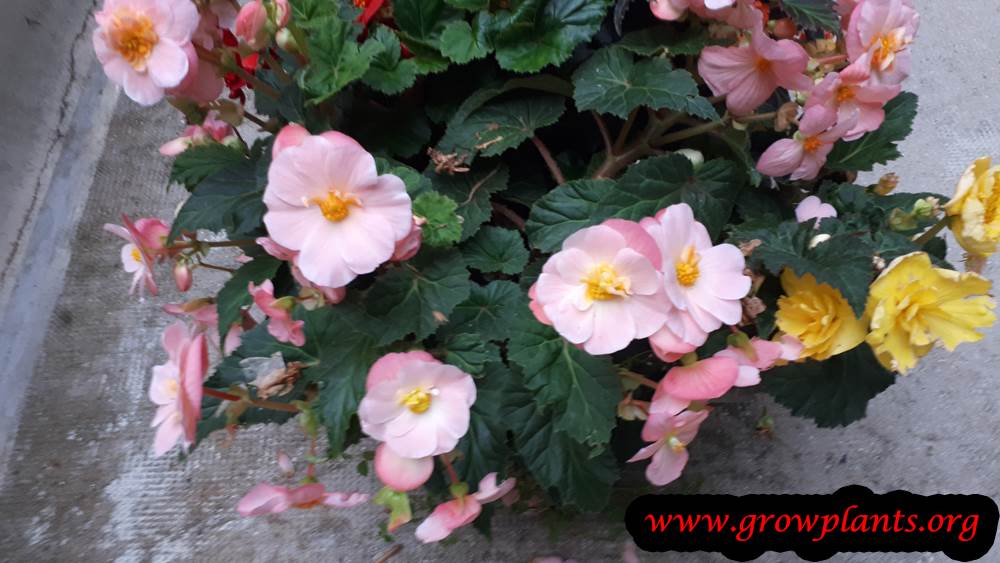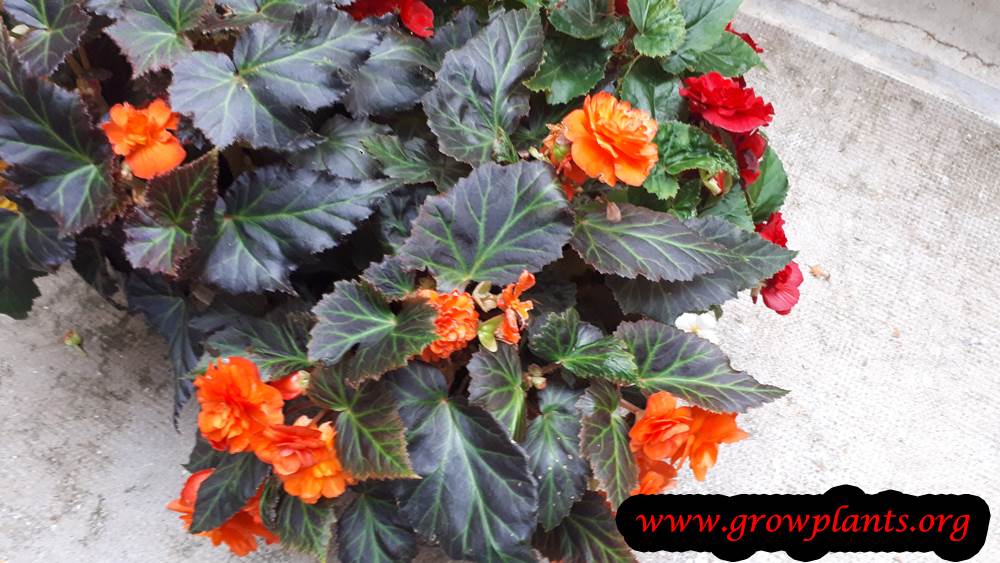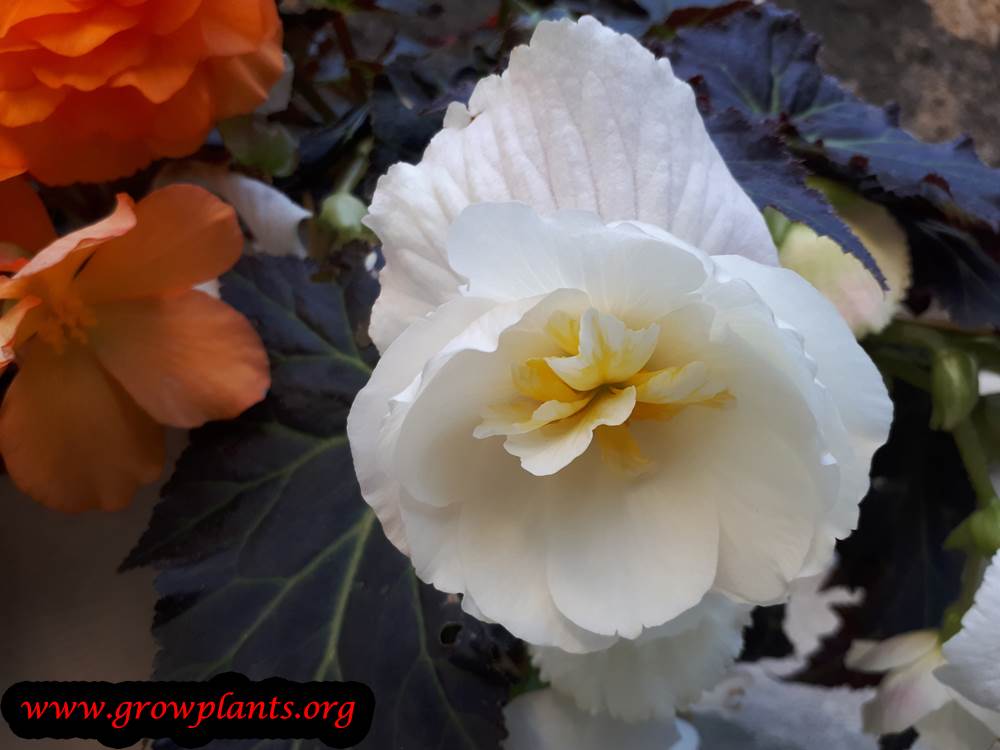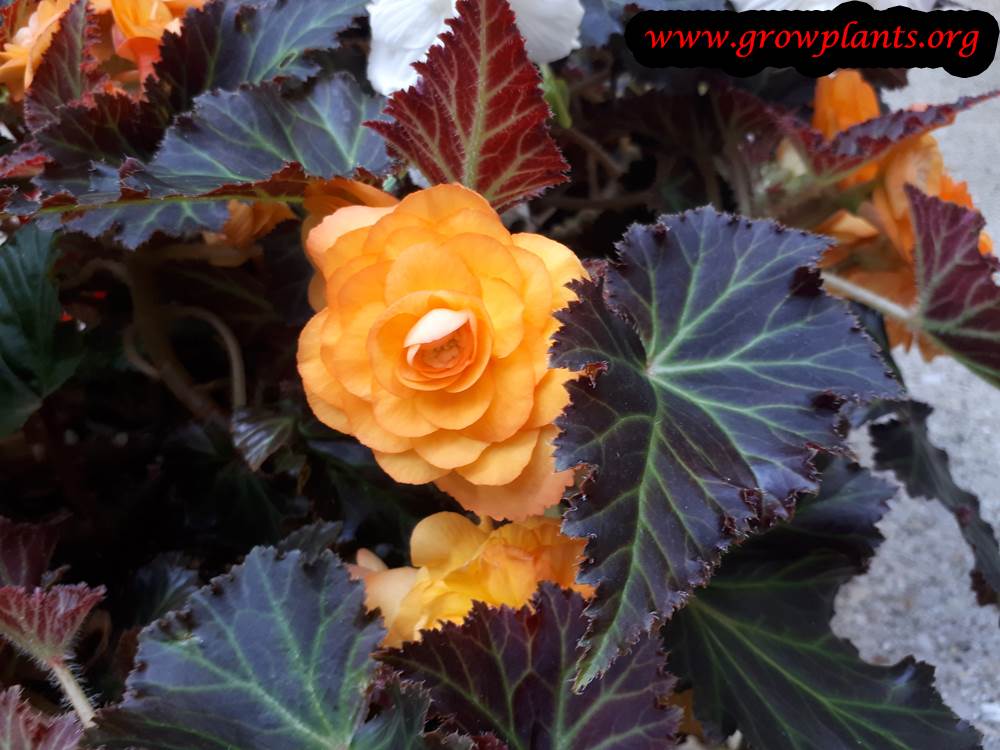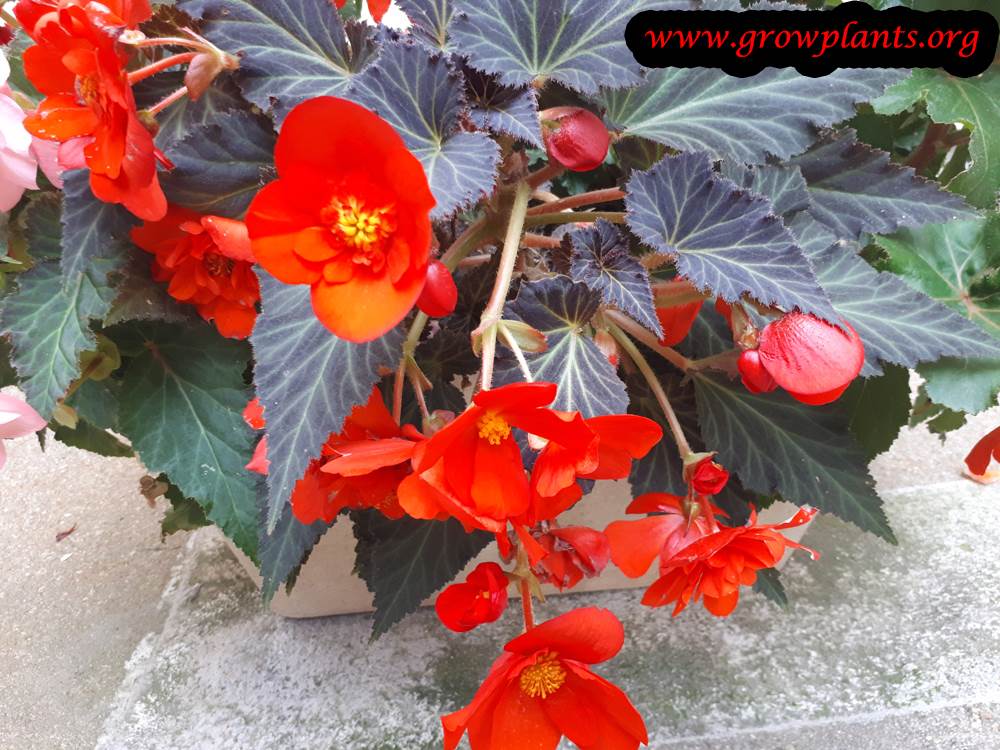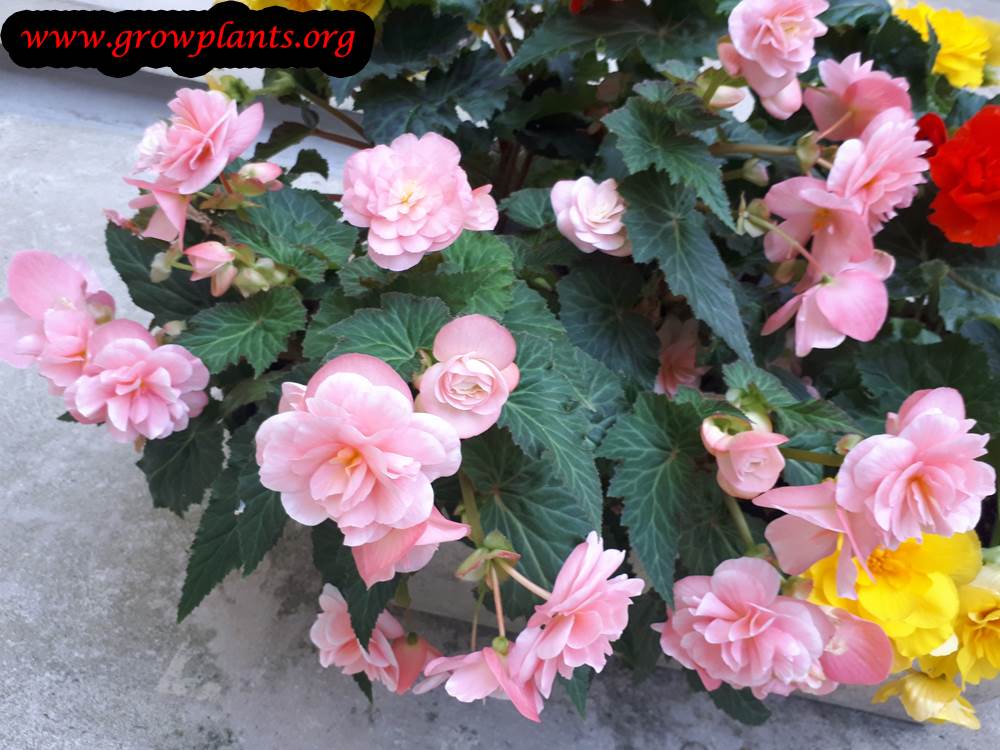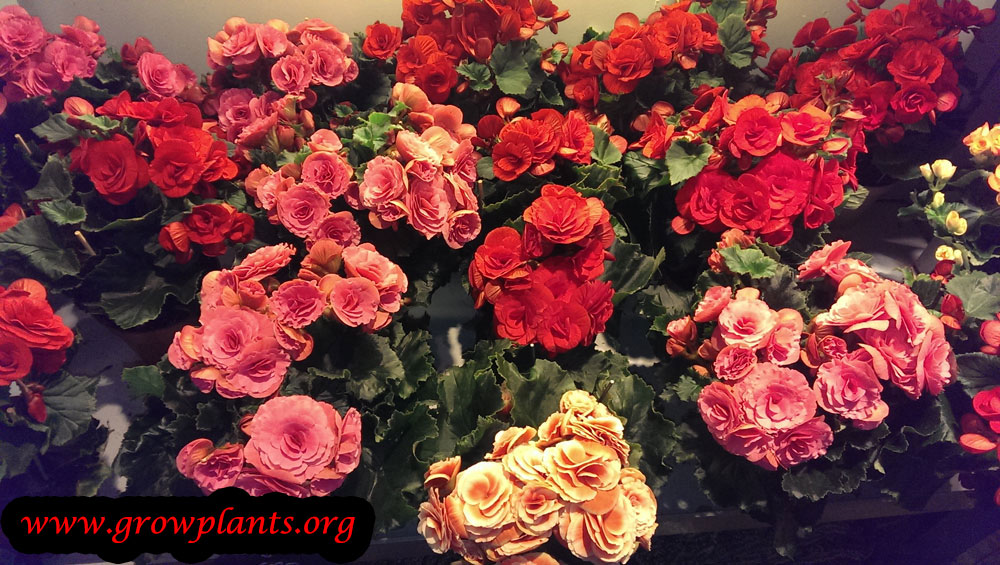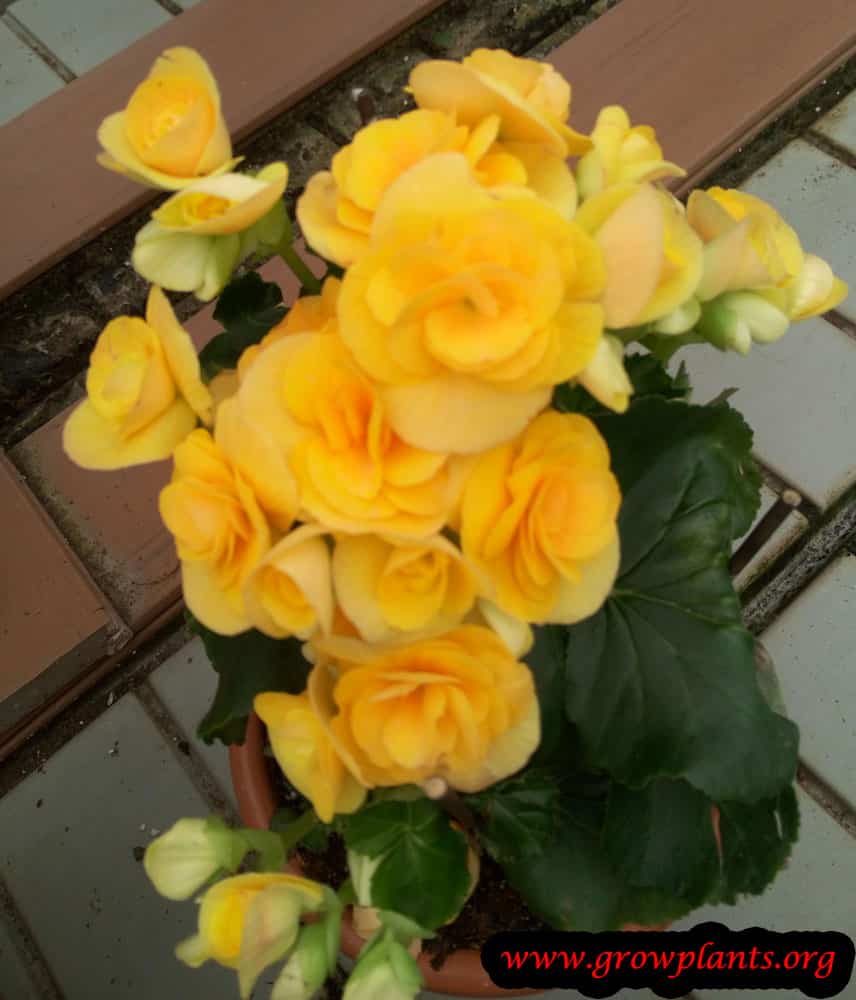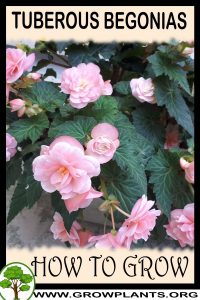
Tuberous begonias grow and care – herbaceous rhizomatous of the genus Begonia also known as Tuber begonia or Begonia tuberhybrida, Tuberous begonias perennial evergreen or annual plant also used as ornamental and can used as cut flowers, can grow in tropic, mediterranean, subtropics, temperate climate or indoor as houseplant and growing in hardiness zone 10b+ as perennial, 5-10 as annual, possible to grow as perennial in hardiness zone 10a in the right care.
Tuberous begonias leaves and flowers
Leaves colors can be: green, purple or yellow, shape can be: heart, round, lobed, snails or snails.
Flower colors can be: pink, red, orange, yellow or white, flower can be more than one color flowers can be flat, double flowers or multi petals (full flowers), flowers grow in clusters.
Tuberous begonias for sale – Seeds or Plants to Buy
How to grow Tuberous begonias growing and care:
How to grow Begonia tuberhybrida:
Humid, moist soil, prefer more than 5C but with the right overwinter care , rich soil
How to care Tuberous begonia:
Fertilizer 2-4 times a year, add humus and organic matter, prune once a year better after the bloom
What is the best way to start growing?
Plant / Seed (care explanation bellow) / Vegetative reproduction, separate rhizomatous better to do it after the bloom or in the beginning of the spring, cutting need to be above 26C (80F) also the water can’t be cold, high humidity, better in full shade for cutting on the water need to switch the soil every few days in growing, to put the stems in soil need moist soil and water it with spray better to use growth hormone and peat soil.
Is it necessary to graft or use vegetative reproduction?
Yes to get the same color and shape for the flowers and the leaves
Difficulties or problems when growing:
Heat wave can kill the plant
Planting season:
Spring as annual in hardiness zone 5-10a, as perennial spring to summer in hardiness zone 10b, spring to summer in hardiness zone 11, all year in hardiness zone 12+
How to plant:
Planting in bigger hole and put organic matter, chopped dead leaves and humus, put the plant and cover it lightly
Pests and diseases:
Aphids, mealy bugs, powdery mildew
Pruning season:
All year
How to prune:
Deadhead and dead leaves
How to deadhead:
Better not to wait that the flowers will die, because the flowers won’t be attractive anymore and meanwhile the plant can make effort to grow new flowers and leaves
Size of the plant:
20-30 cm, 8-12 inches
Growth speed in optimal condition:
Medium growing
Water requirement:
Average amount of water
Light conditions in optimal condition for growing:
Half Shade / Full Shade (with light)
Is it possible to grow indoor as houseplant?
Yes, when grow indoor need to give the plant enough light
Growing is also possible in a planter /flowerpot / containers:
Yes, when grow in container, size 10-20 liter (2.5-5 gallon), average amount of water that needed, it’s to keep the soil moist and the water go out of the pot, better not to use bottom for the pot, when it’s grow as perennial every two years to switch soil, and prune part of the roots and the plants, soil need to be well ventilated with good drainage, rich with organic matter, can us in potting mix or peat soil with perlite or vermiculite.
Blooming information
Bloom season:
Most of the year, spring to autumn in hardiness zone 5-10
General information about the flower
Full flowers multi petals flower can be the colors: pink, red, orange, yellow or white, flower can be more than one color
How to grow Tuberous begonia from seeds
Sowing requirement:
Small seeds, soil can be potting mix or peat soil with vermiculite 22-26C (70-80F), high humidity
Saving seeds and care until sowing:
Dry and dark location
Sowing season:
Spring to summer, possible to start in the early winter indoor
How to plant:
Better to put the seeds on vermiculite it’s help them to germinate
Planting spacing:
15*20cm (6*8 inches)
Depth of Sowing:
On the soil or 0.5cm (0.25 inch)
Conditions for seeds germinate:
High humidity and temperature 22-26C (70-80F)
Watering requires for Seeds:
Average amount of water / Big amount of water, better to use spray of water twice a day
Germination time:
2-5 weeks
Condition of seedling:
Seedling gentle and better to let them to grow a little bit before transplant and also keep high humidity and expose it to more light
Scientific name:
Begonia tuberhybrida
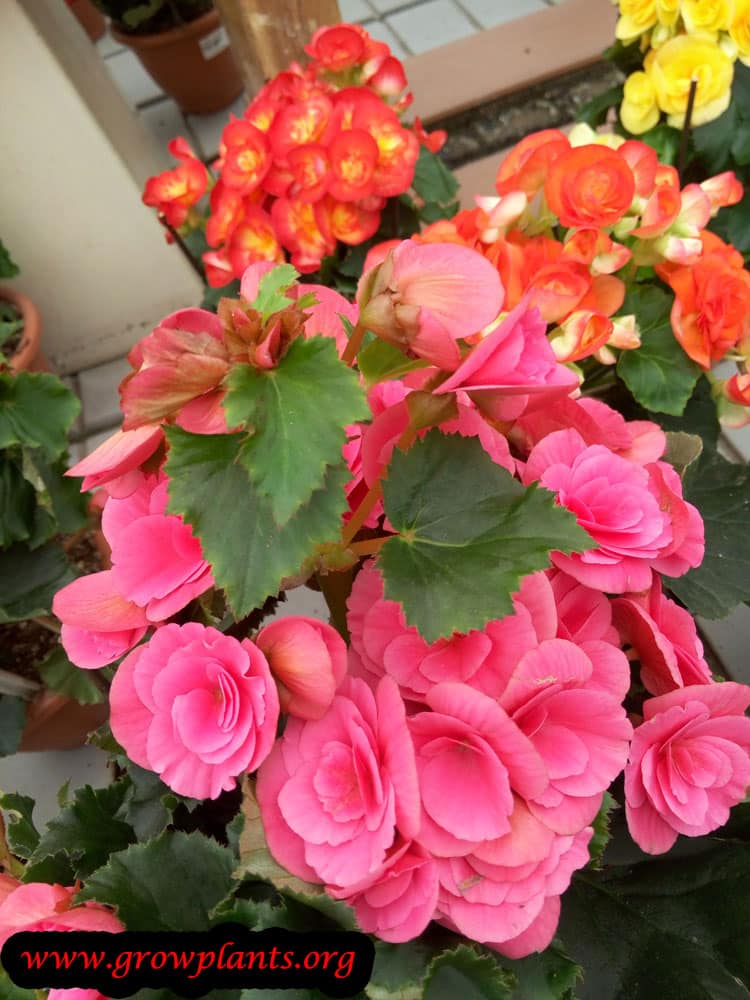
Categories
| Blooming Seasons |
|
|---|---|
| Flower colors |
|
| Climate |
|
| Leaf color |
|
| Ornamental parts |
|
| Plant growing speed |
|
| Plant life-form |
|
| Plant Uses |
|
| Planting Season |
|
| Plants sun exposure |
|
| Watering plants |
|
| Hardiness zone |
|


